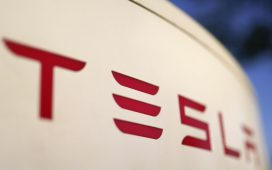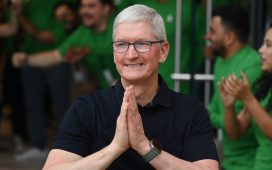The writer is author of the Latin America Risk Report newsletter
At the start of the year, Donald Trump had more Twitter followers than any other current world leader. Then he became the first to be removed from the platform. It was the highest profile action from the many US technology companies that have cracked down on violent extremism following the insurrection at the Capitol. It also set a precedent, and thus raised a question: who might be next, and in which countries?
Having acted to reprimand and then “deplatform” the US president, technology companies will face a hard time avoiding charges of political bias and hypocrisy if they fail to hold other leaders elsewhere to account. There are plenty of potential candidates.
Venezuela’s Nicolás Maduro sent mobs to attack Congress when it was controlled by his opponents and then held a fraudulent election last year to have his party take control. Mr Maduro has not been deplatformed, nor have his tweets claiming control of Congress got a blue exclamation mark warning.
Iran’s supreme leader Ayatollah Ali Khamenei has called for violence against Israel and previously called for violence targeted against the writer Salman Rushdie. After the Rushdie tweet, Mr Khamenei’s account was blocked temporarily and he was forced to delete the tweet to regain access. But other posts that can be read as encouraging violence remain on his account.
Russia’s president Vladimir Putin has intelligence units that use social networks to interfere in foreign elections and manipulate public opinion, according to the US Department of Justice. This must surely be a violation of US tech companies’ terms of service.
China also maintains a robust social media presence, even as the government bans its citizens from accessing many platforms. A recent tweet by China’s embassy in the US, for example, praised reduced birth rates among Uighurs. That is horrifying given accusations that China engages in forced sterilisations and abortions as part of a policy to eliminate this ethnic minority. Twitter forced the tweet’s deletion as it broke in-house rules. Yet that praise wasn’t enough to get the account deplatformed.
There should also be questions about providing social media platforms to certain people, even when they aren’t used improperly. Cuban president Miguel Díaz-Canel is quite civilised on social media. But he also runs a dictatorship and jails political opponents. Giving dictators a pass on social media thanks to their good online etiquette, even as they are repressive offline, seems unjust.
These examples are far from a comprehensive list. Different situations in different countries are also not totally comparable. Even so, there are many leaders who have already come close or crossed the line set by Mr Trump. Their deplatforming should be considered.
All this creates huge challenges for technology companies, and political life more broadly. As Jack Dorsey, Twitter’s chief executive, wrote last week, even if certain leaders deserve to lose access to technology services, fragmenting public conversation brings its own costs.
It is neither in the public interest nor good for the commercial prospects of technology companies if they are pressured to remove high-level officials. Exercising that power will only lead to greater oversight and public criticism. Yet, at the same time, there are governments and politicians everywhere that will abuse any loophole or exception — even as they threaten violence or harm democratic values offline.
I would venture none of the above leaders will see Mr Trump’s deplatforming as a warning. Instead, I would expect them to continue as always, thus forcing the issue. Some may thrive on the controversy, even as they search for new ways to communicate. Brazil’s rightwing president Jair Bolsonaro is among those already looking for alternative platforms. More bans, surely, are coming.








